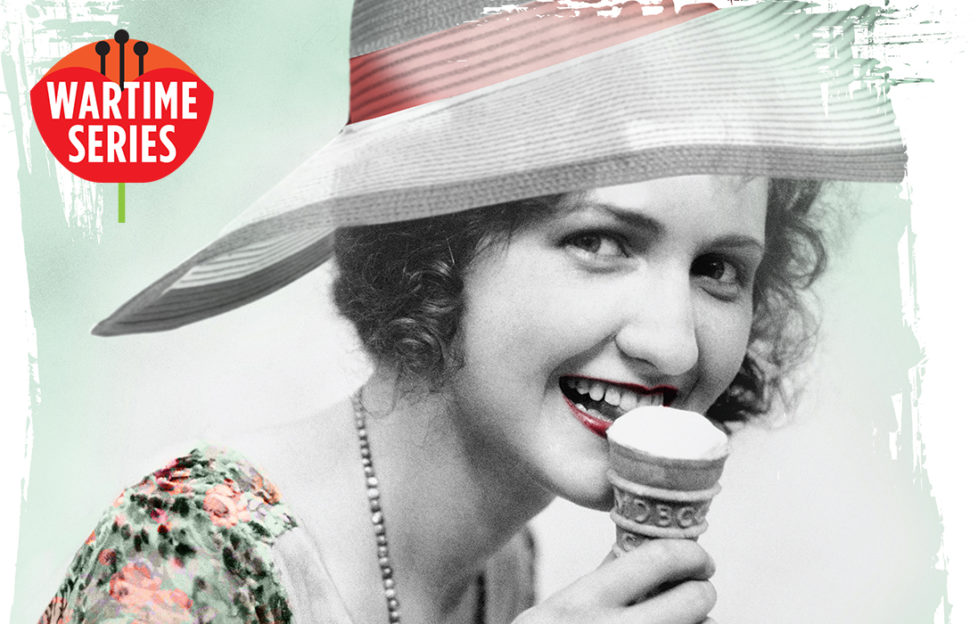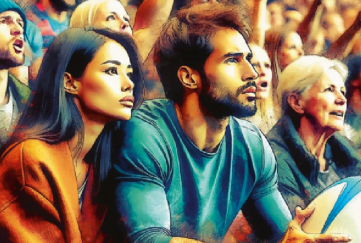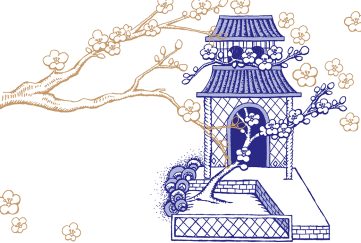Precious Picture Of Love

WRITTEN BY JAN SNOOK
I had never stopped thinking about my grandma’s lost love…
The letter had come exactly a hundred years too late. But it had come. I read the message again and smiled.
How my mother would have loved to be here for this. For years she had talked of tracing her birth father.
I went into the sitting-room and made a final inspection, smoothing a cushion here, moving an ornament there. Then I looked at the photo on the mantelpiece: 1922, and there they all were, gazing seriously at the camera. My mother Jean, aged eight, and her four younger siblings with their parents – my grandparents – Edith and William. William is seated on a carved chair, his wife standing by his side. Jean is on his other side, slightly apart from her brothers and sisters.
The smaller children have cherubic blond curls and china-blue eyes – by repute anyway; they’re light grey in this old photo. My mother, with her lanky limbs and raven hair, looks like the cuckoo in the nest. My grandmother, Edith, is solemn, a gold chain with a winged pendant her only adornment. She was dark haired but blue-eyed as well, though in the photo she looks careworn.
I glance in the mirror over the mantelpiece. I too am dark like my mother. If she were still alive she’d be a hundred this year. My mother’s eyes gaze calmly back at me.
I used to beg my mother to tell me about her childhood – it sounded so unlike mine, so peopled. “Four brothers and sisters,” I would say enviously, from my own only-child perspective, and she would reach down the photograph from the mantelpiece and tell me all their names.
I was about twelve when I learned that they were actually half-brothers and sisters. My mother told me what she knew.
My grandmother had fallen in love with Harry, a pilot, in 1914, just as the war broke out. He was in the Royal Flying Corps, young and very handsome, with jet black hair and dancing dark eyes.
Their meetings had been fleeting and infrequent. She was nineteen when they became engaged, at which point they’d apparently thrown caution to the winds.
My mother had glossed over the details: they intended to get married, she emphasised, just as soon as he could obtain a licence.
Then had come the news that his plane had come down. He was badly burned, horrifically injured but, incredibly, alive. My grandmother was beside herself with worry. She put her nausea and fainting down to anxiety, as well she might.
Time went on with no more news, and then a letter arrived from him. It had been dictated to a nurse, and was strongly worded. Edith was not to visit. Harry was back in England, and would be moving to a convalescent hospital soon. He was breaking off the engagement. Marriage to him would drag her down, he couldn’t allow her to do it. She should forget him, find someone else. But he would never forget her.
She had ignored his instructions and travelled half way across the country to visit him in a huge country house rigged up as a hospital. She arrived by late afternoon and was shown into a cold parlour. After a considerable wait, a stern and starched sister arrived.
He has given specific instructions not to allow visitors
“Are you a blood relative? No? Then you can’t be admitted. He has given specific instructions not to allow visitors.”
“But I’ve travelled over two hundred miles,” my grandmother begged.
The woman was not to be moved. A grudging cup of tea was provided, and Grandma was ushered out. A soft-hearted nurse found her crying in the grounds, and smuggled her to Harry’s bedside.
He was brusque. Told her not to hamper herself with a cripple – his word. But he gave her his gold pilot’s badge – the letters RFC under a crown, with wings on either side. Then he turned his bandaged face away, and she’d made the lonely journey home.
By the time she realised she was pregnant, he’d disappeared. Of course she tried to trace him, but he’d been invalided out of the Flying Corps, and no forwarding address was forthcoming.
“But did you never try to trace him?” I asked my mother when she first told me. “He was your father – surely you were curious?”
But she had nothing to go on.
“There was one occasion,” she told me in a rare moment of confidence, “when I found your grandma crying. I’d never seen her cry. She’d been to meet you off the school bus. She was at the stop and she saw Harry. Just for a fleeting moment as he sailed past in a taxi. He was with a lady she took to be his wife.
Their eyes met, just for a second
“Grandma barely recognised him, what with the scarring, but their eyes met. Just for a second.”
I knew the day she meant, though of course I hadn’t known the circumstances. It was in 1963. Grandma grabbed me roughly by the hand as I got off the bus. She rushed me home, not interested in the petty injustices of my school day. When we arrived home she ran upstairs, and I was fairly sure she was crying.
I went to my room and started my homework with unaccustomed promptness. Grandmothers didn’t cry. Not mine, anyway.
She never met me off the bus again after that day.
A few years later my grandmother died, taking any more clues with her. My mother wore Harry’s wings on a chain round her neck for the rest of her life, always hoping he’d see her and maybe recognise her somehow. A forlorn hope, and she knew it.
The local paper was running a series of articles on the First World War, so I phoned them. I don’t know what I hoped for. It was a last ditch attempt.
They sent a reporter round. William, the man my grandmother married – the man I thought of as Grandpa – had an impressive war record, and she wanted to talk about him. He’d been a local hero.
“So he had five children?” she asked.
“Four children of his own,” I said firmly. “My grandmother, Edith, was expecting my mother Jean when they married, but she wasn’t his.”
“But he brought her up,” the woman said smoothly. “He was, to all intents and purposes, her father.”
“There’s a photo,” I said, “of all of them. He was very fond of it.”
I left the room to fetch it. I’d had a copy made. I had planned this.
And there they were: William, the war hero, sitting in the centre, with my grandmother standing on one side of his chair and my mother on the other. The rest of the children were seated at William’s feet, all blond curls and fresh faces. Jean is the odd one out.
They used the photo in the paper, and my ancient aunts and uncles were delighted. They oohed and aahed at their childish selves, at the smallest baby brother in a dress, at the size of their collars, at the formality. Then an uncle read the caption and frowned.
Look, they’ve put all our ages in, too…
“It’s not important, surely, that Jean was his stepdaughter? Is it? And look, they’ve put all our ages in, too…”
The ages were important. Jean’s age, anyway. Maybe someone would do the maths. I was praying for a miracle.
I opened the letter that arrived, unsuspecting. A copy of a photo fluttered out and landed on the carpet.
My grandmother laughed up at me, wearing a large straw hat and eating an ice cream. Across the corner, in her still familiar loopy writing, were the words To my darling Harry.
I read the note that came with it.
The moment I saw the picture in the paper, I knew it was her. I recognised her instantly from the photo we found in my grandfather’s wallet after his death.
My eyes kept sliding back to the photo. The grandma I knew had never looked this happy. I could see suddenly with utter clarity that what I had always seen as her serious nature was nothing less than a broken heart.
Here she was ecstatic, carefree, full of hope and expectation. Blissfully unaware.
I turned back to the note.
He must have loved her very much to keep her picture with him always…
The address was heartbreakingly local. They could so easily have met.
Harry told me all about Edith shortly before he died… he’d seen her, just once, standing at a bus stop in the autumn of 1963. He was sure it was her.
The letter was signed Stephen.
And now I was going to meet this unknown man. My cousin who would be able to fill in the gaps.
I opened the door and looked at the man standing on the step. He was holding a bunch of roses and looked as apprehensive as I felt.
I found myself looking into my mother’s dark eyes. The same eyes. I realised my mouth was open in surprise. He was looking at me with much the same expression. Suddenly he took my hand, gazing at me with precisely her smile.
“You look so exactly like my sister,” he said, and we both laughed, the tension dissolved.
I fussed about, making tea, asking questions, looking at photos, grinning stupidly, and sneaking covert glances at him. Surely I’d imagined it. He couldn’t look that much like my mother. I glanced again. He did.
He produced pictures of Harry. Our grandfather. His dark eyes shone out of a scarred face under his mop of black hair. There was no doubt he was my mother’s father – or, indeed, that he was our grandfather. Stephen and I both looked like him. He leaned on two sticks, but they didn’t detract from the force of his personality.
“I wonder why he wouldn’t marry my grandmother, when he felt able to marry someone else,” I said sadly.
Stephen looked at the carpet.
“Well… if it’s any comfort, I don’t think his marriage to my grandmother was a love match.”
“So why did they get married?”
By the time he was able to accept himself as he was, your grandmother, his beloved Edith, was long married
“Well, piecing together what my grandfather – our grandfather, I should say – told me, he initially thought he was so, well, damaged and scarred that no woman would ever find him attractive. By the time he was able to accept himself as he was, your grandmother, his beloved Edith, was long married.”
“How did he know?”
“I’m not sure, but when he talked to me about her, he certainly knew. Perhaps her marriage was in the paper.”
We both contemplated this. Then Stephen continued, “Grandfather met the lady he married, my grandmother, at the end of the war when he was looking for somewhere to live. She was a war widow with a four-year-old boy. Anyway, Grandfather was her lodger and ended up marrying her. It suited them both.”
I poured more tea. So many if onlys.
Stephen was just as curious about Edith, and as the afternoon wore on I felt the beginnings of panic. I’d dreamed of this for so long, but now Stephen’s curiosity was satisfied perhaps that would be it. Edith, Jean and I would be consigned to a distant past once more.
“We’ve still got so much catching up to do!” I said, not managing to keep the anxiety out of my voice.
“And the rest of our lives to do it in,” Stephen said seriously. “We’re family.”
“Yes,” I said, smiling in relief and fingering the golden wings at my throat.




